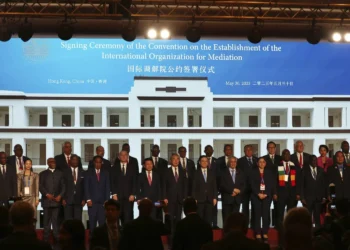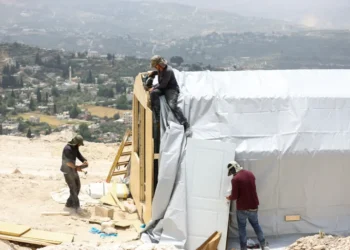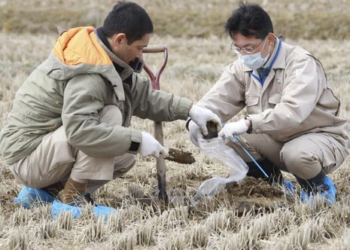In the event of conflict, the role of journalists, who provide a window into the occurrences, becomes both perilous and paramount.
Journalists covering conflict face significant risks as they strive to report on the ground, providing the world with insights into the complex and often volatile situation. The present situation in the Middle East is no different.
The deaths of journalists amid the ongoing Israel-Hamas war underscore the perilous environment in which they operate.
Throughout the conflict, there have been instances where journalists have lost their lives and others have been injured. Some were killed along many family members.
These tragedies raise serious concerns about the safety of journalists, the targeting of media personnel, and the broader implications for press freedom in the region.
Journalists are supposed to be protected in war zones. As such, intentionally targeting journalists, and civilians, is considered a war crime under international humanitarian law.
Preliminary investigations by the Committee to Project Journalists (CPJ) show that at least 42 journalists and media workers have been killed since the Israel-Hamas war began on October 7, making the period the most deadly for journalists since the CPJ’s data collection began in 1992.
As of Monday, “42 journalists and media workers were confirmed dead: 37 Palestinian, four Israeli, and one Lebanese. Nine journalists were reported injured. Three journalists were reported missing. Thirteen journalists were reported arrested”, the group said in a statement.

Journalists covering the war have also experienced “multiple assaults, threats, cyberattacks, censorship, and killings of family members”.
“Journalists across the region are making great sacrifices to cover this heart-breaking conflict,” the CPJ’s Middle East and North Africa Programme Coordinator, Sherif Mansour said in a statement.
“Those in Gaza, in particular, have paid, and continue to pay, an unprecedented toll and face exponential threats. Many have lost colleagues, families, and media facilities, and have fled seeking safety when there is no safe haven or exit,” he said.
It is crucial to acknowledge that journalists, irrespective of their affiliations or reporting perspectives, play a vital role in disseminating information and fostering a deeper understanding of the conflict.
The international community must condemn attacks on journalists and advocate for their protection to ensure that the truth is not silenced amidst the chaos of war.
Investigations into these incidents are necessary to hold those responsible accountable, and efforts should be made to create an environment where journalists can carry out their duties without fear of violence or intimidation.
The tragic deaths of journalists in the Israel-Hamas conflict underscore the urgent need for measures to safeguard the lives of those who courageously bear witness to events on the front lines.
International Community Nearing Complete Paralysis
Francesca Albanese, the UN special rapporteur on the occupied Palestinian territories, has accused Australia and other Western countries of failing to act to prevent “genocidal crimes” in Gaza.
“In the face of all this, the international community is almost completely paralysed. I am being generous when I say almost, with the UN experiencing its most epic political and humanitarian failure since its creation,” Albanese said in a speech to the National Press Club of Australia in Canberra on Tuesday.
She said, “Individual member states, especially in the West – and Australia is no exception – are on the margins, muttering inaudible words of condemnation for Israel’s excesses at best.”
“Or staying silent in fear of restraining Israel’s … self-proclaimed right to self-defence, whatever it means,” she added.
“Here is where we are, staring into the abyss while Palestinians face the most significant existential threat. And, in a different way, the Israelis, especially Israeli Jews, as well, as a society informed by human values that are getting lost as the country gets enveloped in genocidal cries.”
Francesca Albanese
READ ALSO: David Cameron Appointed UK’s New Foreign Secretary







